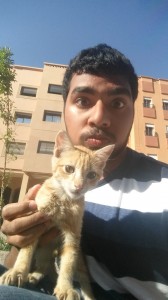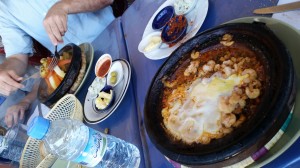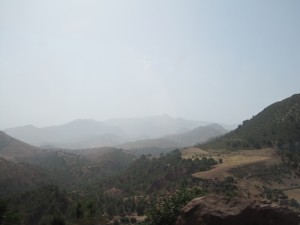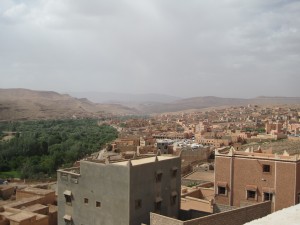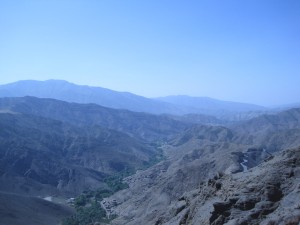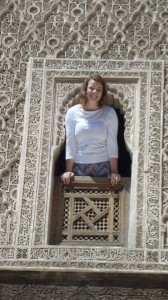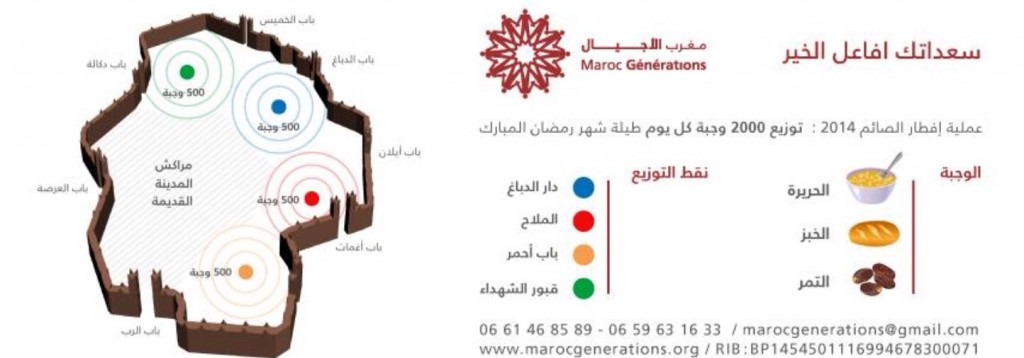Citizenship is a fickle concept. It is a highly personal concept and finding trends based on political affiliations, nationalities, age, or other factors has proven difficult, especially here in Morocco. The question “how do we strengthen citizenship locally and globally?” is a necessarily difficult one. Certainly there are specific steps to be taken within each community which would strengthen individuals’ sense of belonging and a correlated sense of duty to their local, national, and global community. But, there is a common thread that is the key to strengthening the notion of citizenship in every locale and on multiple levels- inclusiveness.
One of the biggest barriers to active citizenship is a sense of oneself as “the other”. It can be the result of exclusionary politics, an exclusionary national identity (more on this later), or exclusionary actions by specific members of a community. Whatever the case may be, the less one feels they are given by their status as citizens of a local community, nation, or the globe, the less they will be inclined to give back in any way.

Students prepare to practice Arabic calligraphy with a local expert in the ancient city of Fes
In Morocco, one of the biggest barriers to a strong sense of citizenship is the inequality of the genders. When Morocco originally became a signatory to the Convention to end all Forms of Discrimination Against Women, they did so with 2 reservations- international law would be trumped when it concerns ascension to the Moroccan throne and when it conflicted with Shari’a law. The second reservation gave Moroccan politicians a lot of wiggle room, because Shari’a law is a nebulous concept which relies heavily on interpretation of texts and tradition which are the subject of continued debate. Eventually, Morocco dropped its reservations and the Convention made it clear that a reservation which inhibited total equality was against the spirit of the agreement, no matter the justification. Further steps were taken in the 2011 Constitution, which enshrines the concept of gender equality in language so strong it cannot possibly be misconstrued- yet there remains a large gap between men and women in legal status as well as earnings, political participation and representation, and other important metrics. Women have become alienated from their identity as Moroccan citizens, often being forced to bend to the will of those who interpret Islam in such a way as to subject them to second class citizenship. The result is that many women feel they do not belong and choose not to participate in politics and restrict themselves to community service and caring for their families as their primary form of citizenship.
Another problem I have seen first-hand in Morocco is the exclusionary notion of “Moroccan” as a national identity that many people hold. Until the creation of the state of Israel, Morocco was home to a sizeable Jewish population which coexisted in relative peace and prosperity with the Muslim population. The remnants of this community can be seen in many cities’ Jewish quarters, or mellahs. Additionally, Morocco’s southern regions still contain a large Berber population- their language is Berber and they tend to remain geographically separated from Morocco’s majority Arab population, residing primarily in the mountains and deserts. But, when you ask many urban, educated Moroccan citizens to define Moroccan, they include both Arab heritage and Islam as two ineluctable aspects of Moroccan identity. This creates a sense of being the “other” for those Moroccan who do not share these identifying factors and weakens their belief in their own citizenship- making them less likely to engage with civil society, politics, and work to improve their national or global community.

The Arabic literally reads: “The Israeli cemetery in the city of Fes”- note that they have used the term “Israeli” interchangeably with “Jewish”, even though most of the people buried here were almost certainly born, raised and lived all their lives in Morocco
I firmly believe that the only way to elevate to a notion of global citizenship is first to construct a national identity that is all inclusive. This is certainly not an easy task in the post-colonial Middle East. Poorly drawn borders have pushed numerous countries into dire political and social situations- spurring civil wars and terrorism in their most tragic cases. It is impossible for people in the midst of such intense conflicts to look beyond their struggle to create a state or community conducive to their own identity to look beyond that desire and ask what they can do to help those outside of their immediate circle. It is difficult and ultimately unreasonable to expect that.
So, what can we collectively do to strengthen citizenship locally and globally? Most importantly is to be inclusive in every aspect of our definition of what it means to be an American or a Moroccan or a Duke student, or any other community which combines people of diverse backgrounds and beliefs. The more accepting we are of each other, the more inclined we will all feel to give back and strengthen that community through community service, political engagement, etc. On a global scale, we must encourage others to do the same. In places suffering from ethnic or religious violence, we must be realistic and rather than continue to impose borders which create conflict, search for ones which allow for people to look beyond themselves as the “other” and have a sense of belonging in their own nation. It is crucial for everyone to feel this before they can look at themselves as belonging to an international citizenry and working for the betterment of people in other nations- which we have an unprecedented opportunity to do in this era of ever expanding global economic, political, and social integration.


